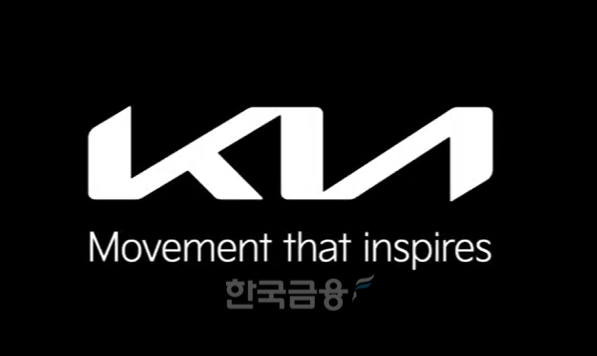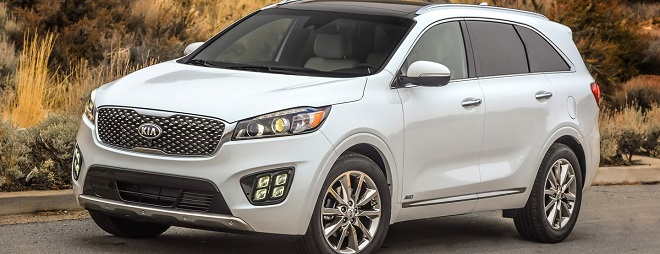
Kia CI / Photo credit = Kia
Hyundai Motors, which reported earnings the day before, also took a KRW 320 billion provision for extended engine warranty costs in North America. Their operating profit was KRW 3.58 trillion with an 8.3% operating profit margin. Without these related costs, operating profit would have been KRW 3.9 trillion with a 9.1% margin.
The engines in question are the ‘Lambda 2 engines’ used in vehicles produced in the 2010s. This is a 3000cc high displacement engine that was mainly used in mid-size and larger vehicles. It has now been replaced by a third generation engine, the ‘Smartstream’, and is no longer in production.
The warranty extension covers all 2013-2019 Grand Santa Fe (known as Maxcruz in Korea) models sold in North America for Hyundai Motors. For Kia, it mainly applies to 2014-2017 Cadenza (K7) and Sorento models.
Hyundai Motors explained that "the issue arose from not fully reflecting American consumer characteristics during product development." They explained that Americans prefer using trailer hitches, and they hadn't sufficiently considered the strain this puts on the engine. Their measure only applies to SUVs (Grand Santa Fe) and excludes Genesis sedans.
The reason Kia's costs are nearly double Hyundai's is that they included sedans (K7) in the affected vehicles. Kia only explained that "while sharing the Lambda name, the engine production facilities are different, and the issues are somewhat different."
Both companies emphasized that "there is no possibility of recurrence" regarding this warranty extension measure.
From 2015 to 2022, Hyundai and Kia incurred over KRW 8 trillion in costs related to the 'Theta 2' engine. The companies seemed to resolve the situation by implementing a lifetime warranty program for Theta 2 engines in 2020. However, two years later in 2022, additional costs of nearly KRW 3 trillion emerged.
They cited 'difference in experience' as the key distinction between the Lambda 2 and Theta 2 quality costs. With Theta 2, they initially recalled only 2014-2017 models, but costs increased significantly when issues spread to 2018-2019 models. This time, they claim to have set aside sufficient provisions, being extremely conservative internally. A Hyundai official stated, "We've proactively set aside sufficient costs to prevent any recurrence of past issues."
Gwak Horyung (horr@fntimes.com)






























![[DQN] "지자체 금고 잡아라"…출연금 신한 1위·금고 규모 농협 압도적](https://cfnimage.commutil.kr/phpwas/restmb_setimgmake.php?pp=006&w=69&h=45&m=5&simg=2024112102061902156f09e13944d391241172.jpg&nmt=18)



![민병덕 의원, '토큰증권(STO) 법제화' 위한 2법 대표발의 [22대 국회]](https://cfnimage.commutil.kr/phpwas/restmb_setimgmake.php?pp=006&w=69&h=45&m=5&simg=2024112011071109189179ad4390712813480118.jpg&nmt=18)

![[DCM] GS리테일, 1500억 공모채 발행…전북은행도 후순위채로 BIS비율 개선](https://cfnimage.commutil.kr/phpwas/restmb_setimgmake.php?pp=006&w=69&h=45&m=5&simg=2024112014294102958141825007d12411124362.jpg&nmt=18)

















![[카드뉴스] 국립생태원과 함께 환경보호 활동 강화하는 KT&G](https://cfnimage.commutil.kr/phpwas/restmb_setimgmake.php?pp=006&w=298&h=298&m=1&simg=202403221529138957c1c16452b0175114235199_0.png&nmt=18)
![[카드뉴스] 신생아 특례 대출 조건, 한도, 금리, 신청방법 등 총정리...연 1%대, 최대 5억](https://cfnimage.commutil.kr/phpwas/restmb_setimgmake.php?pp=006&w=298&h=298&m=1&simg=20240131105228940de68fcbb35175114235199_0.jpg&nmt=18)
![[카드뉴스] 어닝시즌은 ‘실적발표기간’으로](https://cfnimage.commutil.kr/phpwas/restmb_setimgmake.php?pp=006&w=298&h=298&m=1&simg=202311301105084674de68fcbb35175114235199_0.png&nmt=18)
![[신간] 사모펀드 투자와 경영의 비밀](https://cfnimage.commutil.kr/phpwas/restmb_setimgmake.php?pp=006&w=81&h=123&m=5&simg=2024102809331308730f8caa4a5ce175114235199.jpg&nmt=18)
![[신간]퍼스널브랜딩, 문학에서 길을 찾다](https://cfnimage.commutil.kr/phpwas/restmb_setimgmake.php?pp=006&w=81&h=123&m=5&simg=2024102214123606876f8caa4a5ce175114235199.jpg&nmt=18)
![[서평] 추세 매매의 대가들...추세추종 투자전략의 대가 14인 인터뷰](https://cfnimage.commutil.kr/phpwas/restmb_setimgmake.php?pp=006&w=81&h=123&m=5&simg=2023102410444004986c1c16452b0175114235199.jpg&nmt=18)

![[신간] 김국주 전 제주은행장, ‘나는 시간을 그린다 1·2’ 에세이 출간](https://cfnimage.commutil.kr/phpwas/restmb_setimgmake.php?pp=006&w=81&h=123&m=5&simg=2024111517430908074c1c16452b012411124362.jpg&nmt=18)








